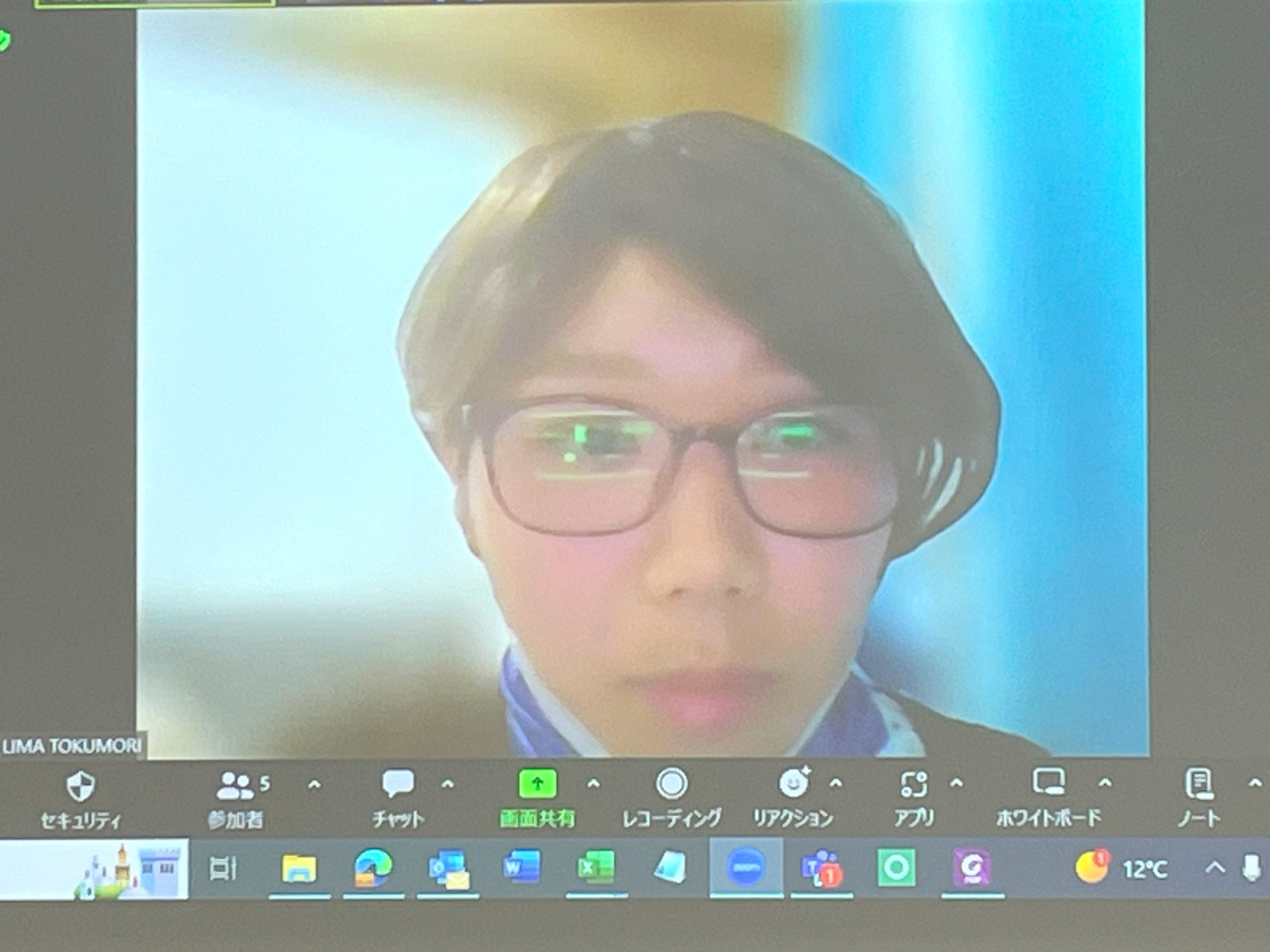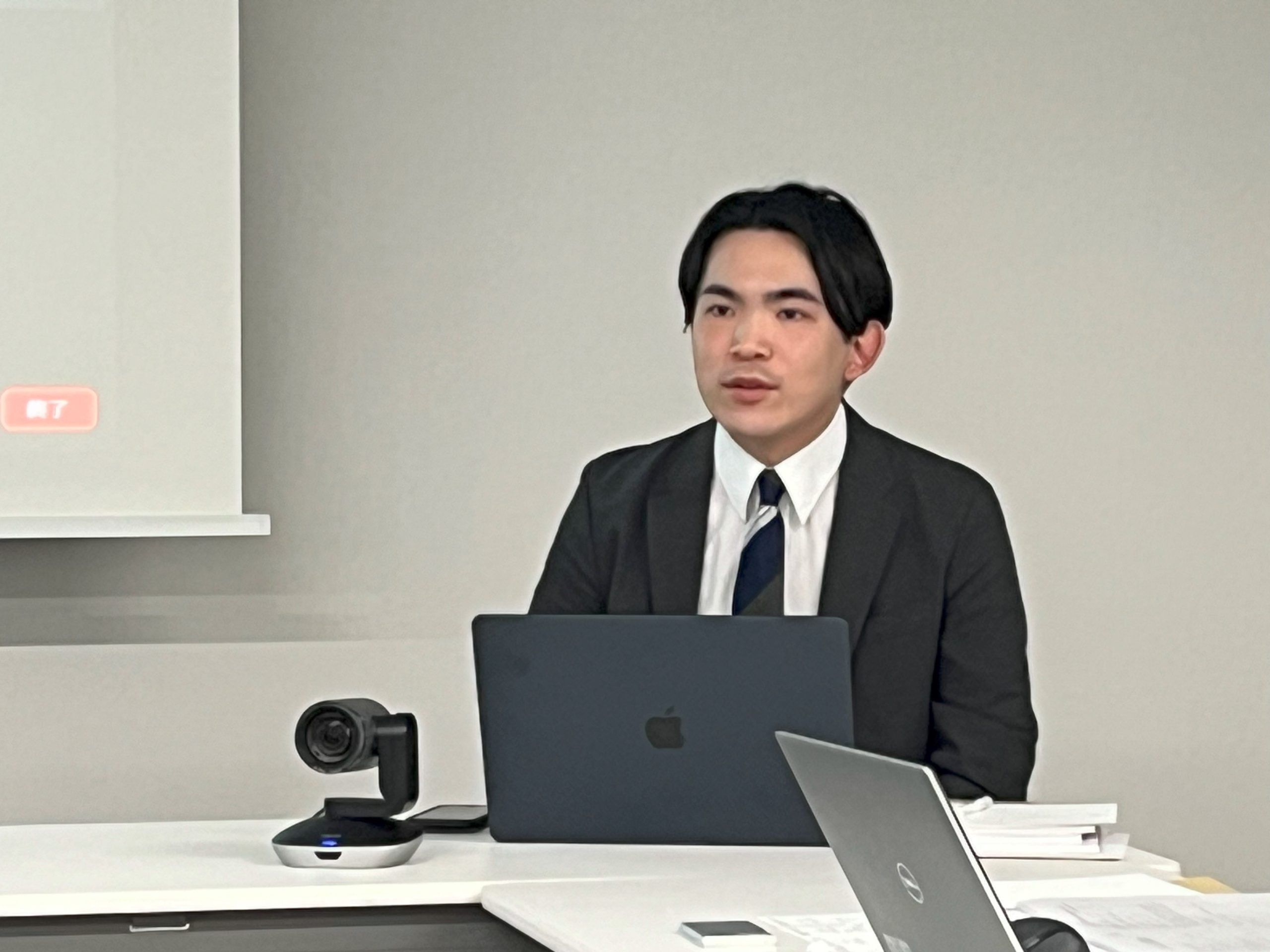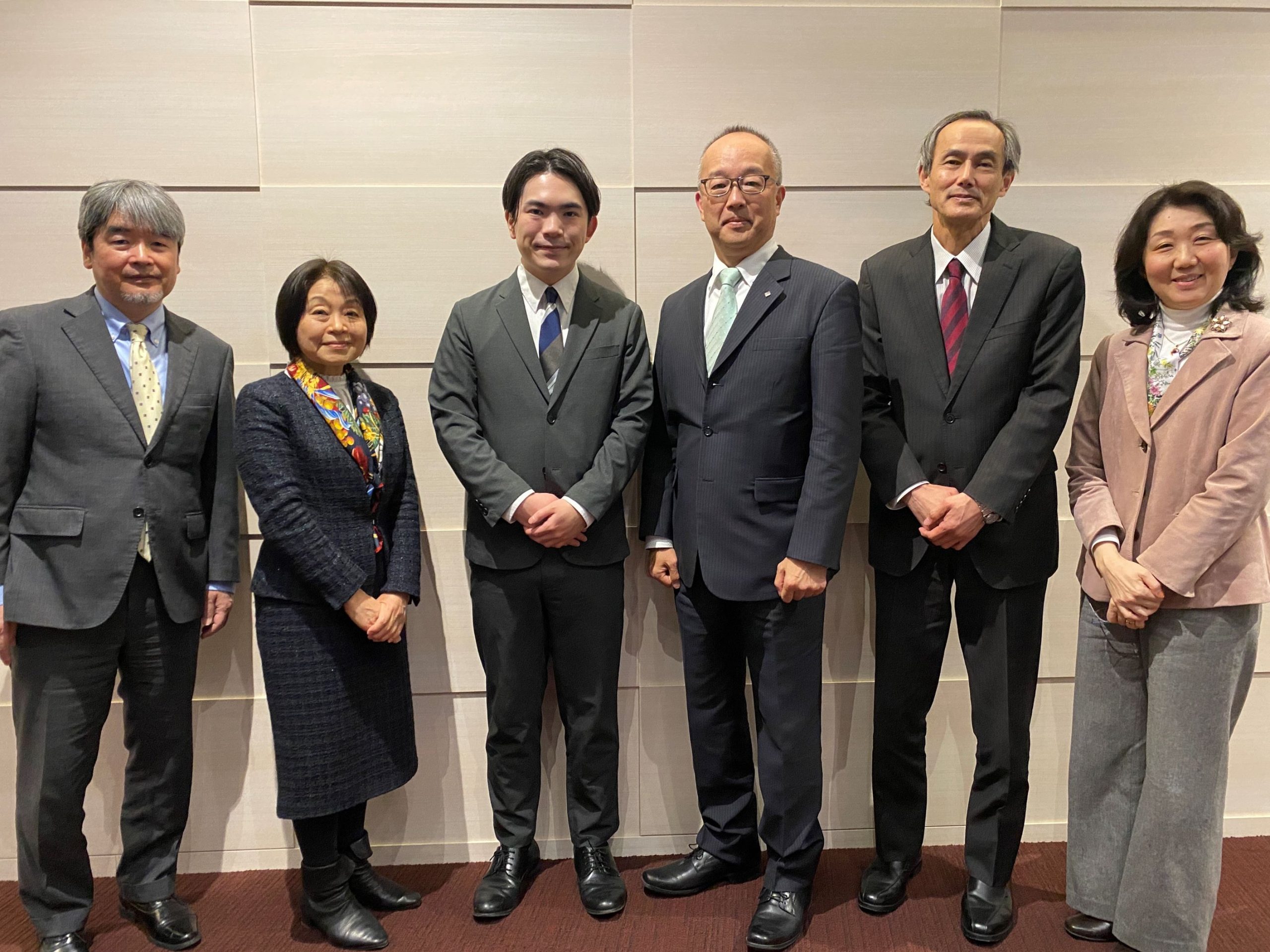Sylff News
May 9, 2024
Presentations by Waseda Fellows and Meeting of the Steering Committee
On March 22, 2024, Waseda University held its annual meeting of the Sylff steering committee and heard presentations by two Waseda fellows on their recent research and social engagement activities.
The gathering, held at Waseda’s campus in Tokyo and attended by members of the Tokyo Foundation for Policy Research (Sylff Association secretariat) as well as the university’s faculty and administrative staff, was the first in four years to be held in person following the outbreak of COVID-19.
War and the Okinawan Diaspora

Participating online from Mexico, Lima Tokumori, a 2023 fellowship recipient enrolled in the Graduate School of Social Sciences, presented an interim report on “Uchinanchu Concepts: Militarization and Ethnicity as Seen in the Cases of Okinawan Immigrants in the Philippines, Peru, and Hawaii.”
Her doctoral research seeks to examine the historical impact of militarization on the Ryukyuan-Okinawan diaspora—who identify themselves as Uchinanchu. She used her fellowship last year to conduct fieldwork around US military bases in the Philippines and Okinawa. She reported on the importance of carefully building trust with her interviewees in getting them to provide detailed information, including on such sensitive subjects like gender and war.
In addition to writing her dissertation, Tokumori is currently involved in various other activities. She volunteers her time for the Business and Human Rights[i] project of the UN Development Program at its Mexico office and undertakes human resources development and administrative duties for the annual event to read aloud the names of all war victims in the Battle of Okinawa. Her plans for next year include conducting fieldwork in Peru and collecting materials in the United States. She hopes to pursue a career in the United Nations.
Empirical Analysis of Workplace Health Measures

Ritsu Kitagawa of the Graduate School of Economics, who received his fellowship in 2022 and 2023, meanwhile, presented his final report on the “Empirical Analysis of Health Management: Verifying the Effectiveness of Health Support Measures in the Workplace.”
Japan’s declining birthrate and aging population are compelling many companies to give greater attention to making sure their employees remain healthy and active so as to ensure a stable workforce. Kitagawa’s doctoral research aims to quantitatively verify the effectiveness of various health-related workplace measures and to identify best health-management practices.
One of his findings was that supervisor-directed overtime significantly raised stress levels and the likelihood of such physical ailments as headaches, stiff shoulders, and back pain among male employees hired for their expert skills. He also found that metabolic syndrome risks can affect male and female employees differently, with women often gaining weight and men growing slimmer. These results suggest the need for corporate health measures that are customized for gender and career track. Kitagawa has been sharing his findings at various workshops and conferences and advocating for more nuanced workplace policies.
He has also verified the usefulness of app-based health promotion programs and is promoting their use among various companies. He himself has developed an app for LINE that female employees can use and is working for its broad dissemination.
He reported that the two-year Sylff fellowship enabled him to expand his research activities through purchases of research equipment, implementation of questionnaire surveys, and participation in overseas conferences, as well as facilitating research-related social engagement activities.

Ritsu Kitagawa (third from left), SSC chair and Waseda professor Shinji Wakao (fourth from left), SSC member and Waseda professor Kazuyuki Sasakura (second from right), and members of the Sylff Association secretariat.
The Tokyo Foundation expressed its deep gratitude to the Waseda Sylff steering committee for its smooth program operations and effective fund management, as well as for the selection of outstanding fellows and its longstanding cooperation with the Sylff program.
[i] The UNDP’s Business and Human Rights (B+HR) project is supported by the governments of Japan, Sweden, and the European Union. In Mexico, it works to strengthen human rights due diligence among Japanese companies operating locally and along their supply chain.